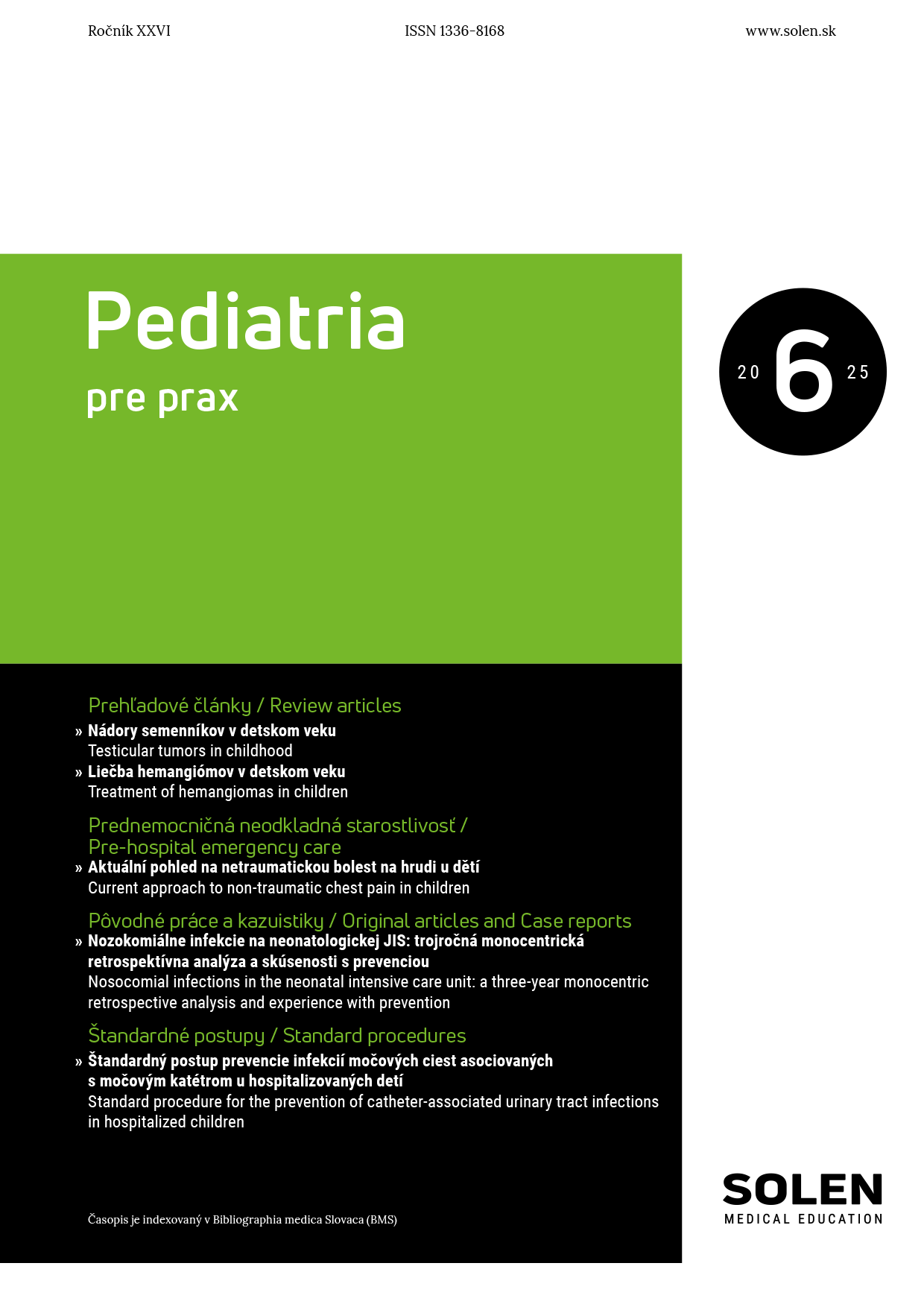Onkológia 2/2025
Imunoterapia v liečbe metastatického karcinómu žalúdka
Karcinóm žalúdka patrí medzi najčastejšie malignity gastrointestinálneho traktu. Biologická agresivita tohto nádoru vyvolaná vysokou genetickou heterogenitou má nepriaznivý vplyv na efektivitu liečby, kedy dochádza k znižujúcej sa účinnosti štandardných terapeutických postupov. Hoci chemoterapia ostáva naďalej základným pilierom liečby, jej účinnosť sa znižuje v dôsledku vývoja rezistencie. V liečbe karcinómu žalúdka v roku 2015 sa začala používať imunoterapia. Použitie inhibítorov imunitných kontrolných bodov, ako sú PD-1 a PD-L1 inhibítory, ukázalo sľubné výsledky v zlepšení odpovede na liečbu a predĺžení prežitia u vybraných skupín pacientov. Tento prelomový terapeutický prístup ponúka novú nádej pre pacientov, u ktorých štandardná chemoterapia nevykazuje dostatočnú účinnosť.
Kľúčové slová: karcinóm žalúdka, imunoterapia, nivolumab, pembrolizumab, dostarlimab
Imunotherapy in treatment of metastatic gastric carcinoma
Gastric carcinoma is one of the most common malignancies of the gastrointestinal tract. The biological aggressiveness of this tumor, caused by high genetic heterogeneity, negatively affects effectiveness of treatment, leading to a decreasing efficacy of standard therapeutic approaches. Although chemotherapy remains a mainstain of treatment, its effectiveness is decreasing due to the development of resistance. Immunotherapy began to be used in the treatment of gastric carcinoma in 2015. The use of immune checkpoint inhibitors, such as PD-1 and PD-L1 inhibitors, has shown promising results in improving treatment response and prolonging survival in selected groups of patients. This breakthrough therapeutic approach offers new hope for patients in whom standard chemotherapy does not demonstrate sufficient efficacy.
Keywords: gastric carcinoma, imunotherapy, nivolumab, pembrolizumab, dostarlimab

















